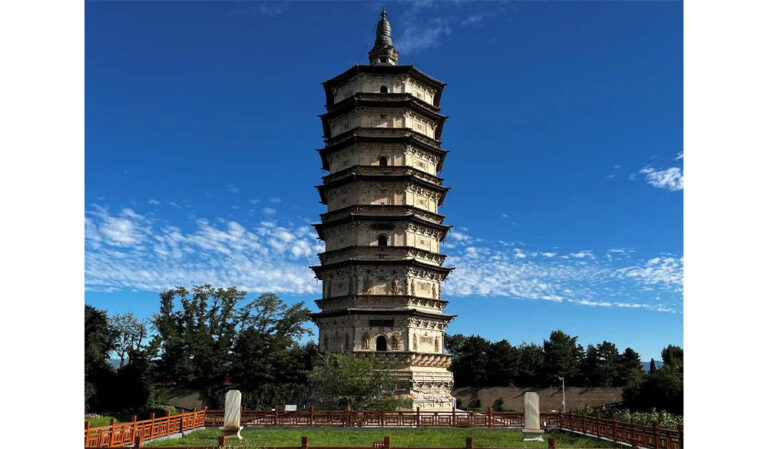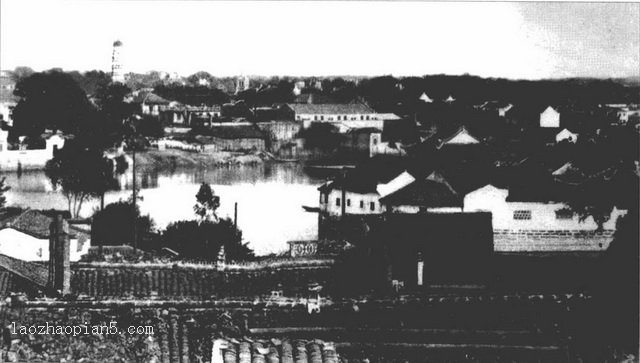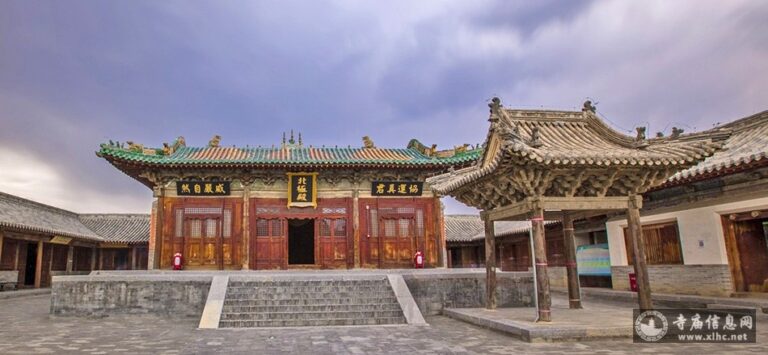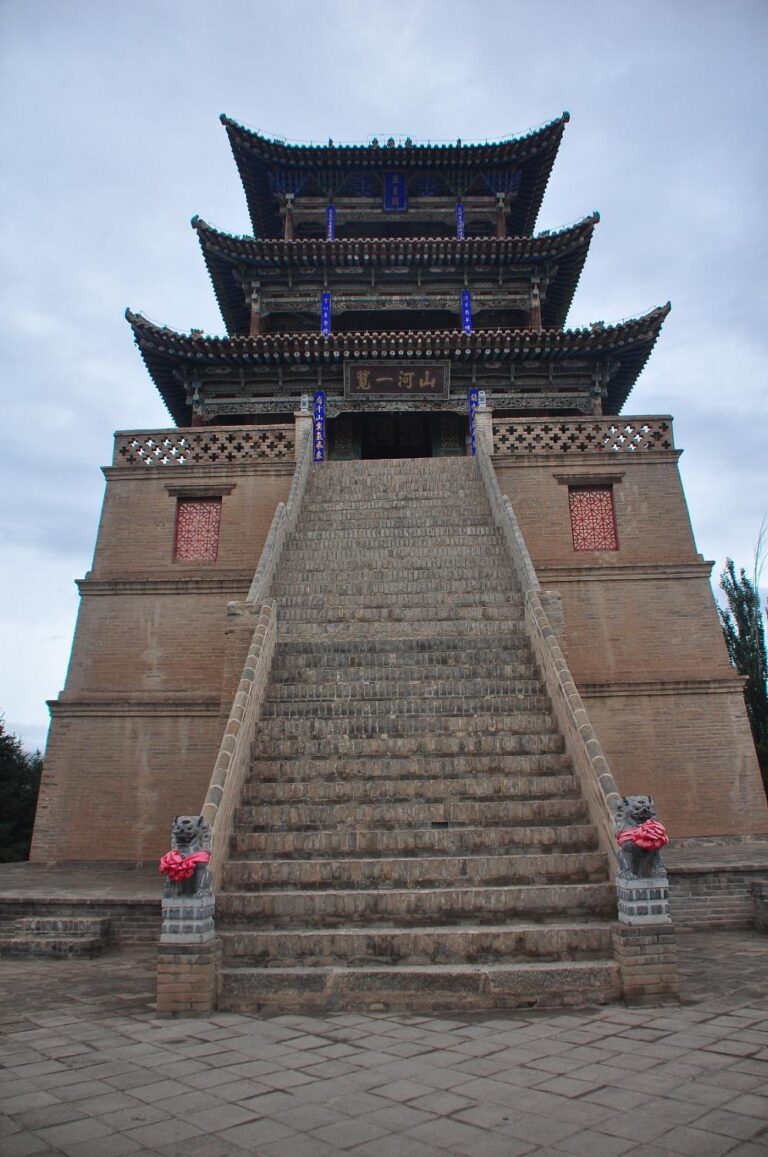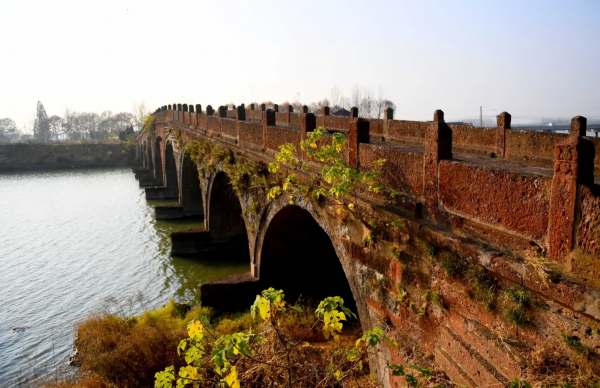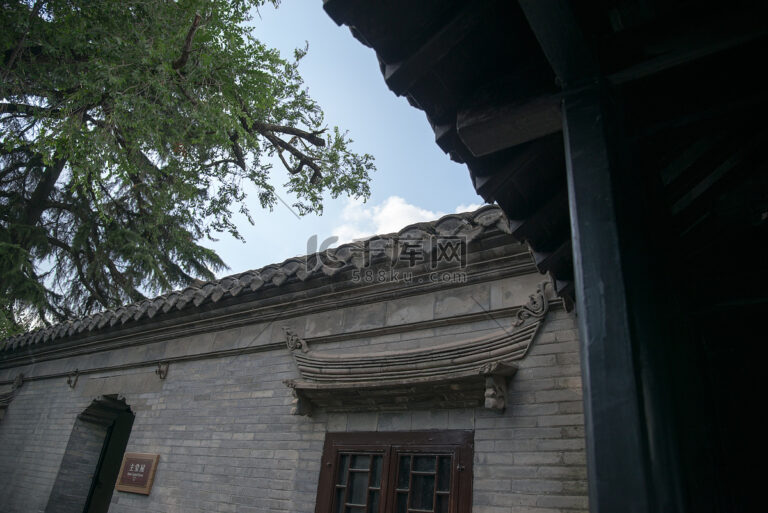A Traveler’s Guide to Baoding Geyuan Temple: History, Architecture, and Tranquility
An Essential Guide to Visiting Baoding Geyuan Temple
In This Guide
- An Essential Guide to Visiting Baoding Geyuan Temple
- The Rich History of Baoding Geyuan Temple
- Main Highlights: What to See at Baoding Geyuan Temple
- Planning Your Visit: A Practical Guide
- Tickets, Hours, and Booking
- How to Get There
- Local Cuisine and Accommodation
- Frequently Asked Questions
- Final Thoughts on Your Trip
Nestled in the serene surroundings of Laiyuan County, Hebei Province, Baoding Geyuan Temple (阁院寺) stands as a testament to China’s rich historical and architectural heritage. This ancient temple complex, originally founded during the Eastern Han Dynasty, showcases the remarkable craftsmanship of the Liao Dynasty with its most notable structure, the Wenshu Hall, dating back to the year 966. As one of the oldest and best-preserved wooden structures in the country, this temple offers visitors a unique glimpse into the architectural styles that flourished over a millennium ago.
Geyuan Temple, which was once known as “Geziyuan” before the Ming Dynasty, is not just a place of worship but a cultural landmark that embodies the spiritual essence and artistic endeavors of its time. The temple complex is adorned with intricate wooden beams and colorful frescoes, with Wenshu Hall featuring exquisite lattice windows that are rare to find in other historical sites. The tranquil atmosphere, punctuated by the gentle rustling of leaves and distant bird songs, invites visitors to reflect and connect with the past.
Despite its historical significance, Geyuan Temple remains a peaceful retreat, often overlooked by the bustling tourist crowds. Whether you are a history enthusiast, an architecture lover, or simply seeking a moment of calm, this hidden gem offers a perfect escape into the heart of China’s cultural tapestry. As you step through its ancient gates, you’ll find yourself transported back in time, surrounded by the whispers of monks and the echoes of prayer that have resonated within its walls for centuries.
The Rich History of Baoding Geyuan Temple
Nestled in the serene landscape of Laiyuan County, Baoding Geyuan Temple is a remarkable historical site that dates back to the Eastern Han Dynasty (25-220 AD). Originally known as “Gezi Yuan,” the temple has undergone numerous renovations and expansions throughout its long history, with the most significant architectural features being constructed during the Liao Dynasty (916-1125 AD).
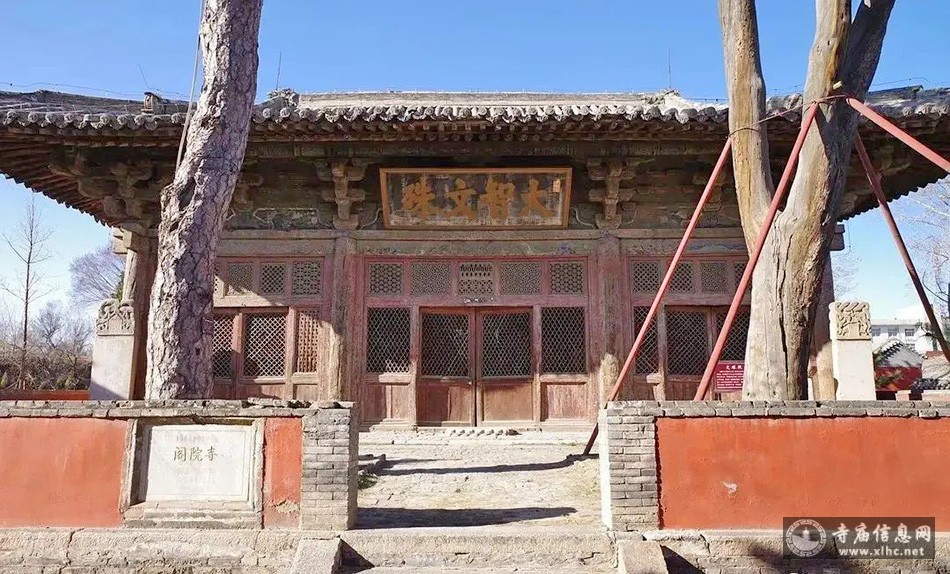
Baoding Geyuan Temple.
The temple is particularly renowned for its central hall, the Wenshu Hall, which stands as a quintessential example of early Liao architecture. Erected in 966 AD, this hall is celebrated for its impressive wooden structure and intricate craftsmanship. It showcases the distinctive style of Liao government architecture, featuring a unique bracket system that reflects the architectural innovations of the time. This hall, along with the temple’s other structures, has earned Geyuan Temple a place among China’s national treasures.
Over the centuries, Geyuan Temple has served multiple religious and cultural purposes, solidifying its status as a significant Buddhist site. It houses ancient relics, including carved stone pillars, intricate murals, and an ancient iron bell, all of which highlight the temple’s historical and artistic value. The temple is also notable for its preservation of original elements from different dynasties, making it one of the few surviving wooden structures in China that has remained largely intact for over a millennium.
Today, Baoding Geyuan Temple stands not only as a place of worship but also as a testament to the rich cultural heritage of the region. It attracts visitors who are eager to explore its deep historical roots and appreciate the stunning architecture that has witnessed the passage of time. Despite periods of neglect and restoration, Geyuan Temple continues to be a beacon of historical significance, drawing scholars, artists, and tourists alike to experience its tranquil beauty and storied past.
Main Highlights: What to See at Baoding Geyuan Temple
Baoding Geyuan Temple, also known as Ge Yuan Si, is a must-visit historical site nestled in the scenic Laiyuan County of Hebei Province. This ancient temple complex, founded during the Eastern Han Dynasty, boasts remarkable architectural features that have withstood the test of time. Here are some of the key highlights of this cultural gem:
-
Architectural Marvels: The temple’s most significant structure is the Wenshu Hall, constructed during the Liao Dynasty in 966 AD. This hall exemplifies early Liao architectural style, showcasing intricate wooden beams and decorative brackets that reflect the sophisticated craftsmanship of the era. The hall’s large windows and vibrant murals offer a glimpse into the artistic traditions of ancient China.
-
Historical Significance: Geyuan Temple is one of the oldest wooden structures in China, recognized for its well-preserved state and historical importance. As part of the Eight Great Liao Constructions, it stands as a testament to the architectural and cultural heritage of the Liao Dynasty.
-
Cultural Atmosphere: When you enter the temple grounds, you are immediately enveloped in a serene atmosphere filled with the scent of incense and the sound of gentle chimes. The temple features tranquil courtyards and lush greenery, making it an ideal spot for reflection and meditation.
-
Unique Features: Among the temple’s treasures are ancient relics, including a stone stupa and an iron bell, both dating back to the temple’s early years. The stupa, intricately carved, houses sacred texts and relics significant to the Buddhist faith.
-
Accessibility and Visitor Experience: While there may be periods when certain areas of the temple are closed for restoration, visitors can still enjoy the open sections. The site is easily accessible, located just a short walk from local transportation hubs, allowing for a convenient visit.
-
Local Context: Geyuan Temple is not only a site of historical importance but also a part of the vibrant local community. Proximity to local parks and eateries enriches the experience, making it easy to combine a visit to the temple with other local attractions.
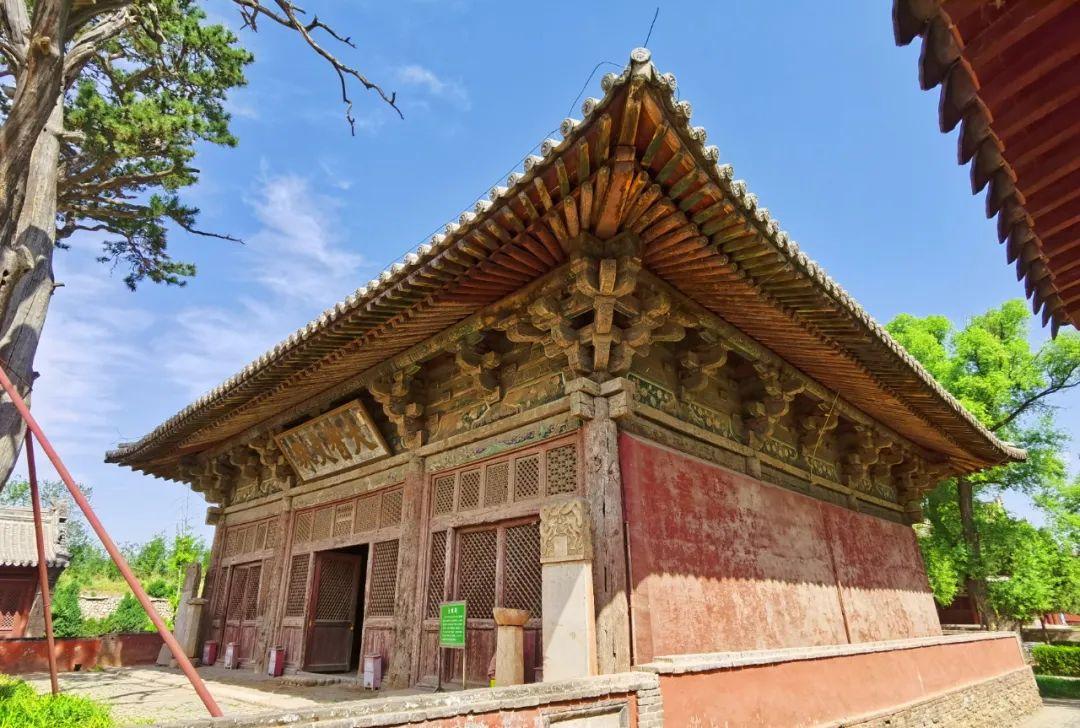
Baoding Geyuan Temple.
Visiting Baoding Geyuan Temple offers a unique opportunity to step back in time and appreciate the rich tapestry of Chinese history and culture. Whether you are an avid history buff or simply in search of tranquility, this temple is sure to leave a lasting impression.
Planning Your Visit: A Practical Guide
Practical Guide to Visiting Baoding Geyuan Temple
Nestled in the serene town of Laiyuan, Baoding Geyuan Temple (阁院寺) is a remarkable relic that transports visitors back to ancient Chinese history. Known for its well-preserved architecture and cultural significance, this temple is a must-visit for anyone traveling through Hebei Province. Here’s a practical guide to help you make the most of your visit.
Location and Getting There
Geyuan Temple is located at No. 1 Geyuan Road, in the northwest corner of Laiyuan County, Baoding City, Hebei Province. It is approximately 150 meters west of the intersection of Guangchang Avenue and Geyuan Road.
- By Public Transport: You can reach Laiyuan by train or bus from major cities like Beijing or Shijiazhuang. Once in Laiyuan, local buses frequently run to the town center where the temple is situated.
- By Car: If you’re driving, the temple is easily accessible via the main roads leading into Laiyuan. Parking may be available nearby.
Opening Hours and Admission
Geyuan Temple is currently temporarily closed for renovations, with reopening dates yet to be announced. Typically, when operational, the temple opens at 8:00 AM and closes at 6:00 PM. Admission prices can vary, but it is advisable to check for the latest updates online or through local tourism offices.
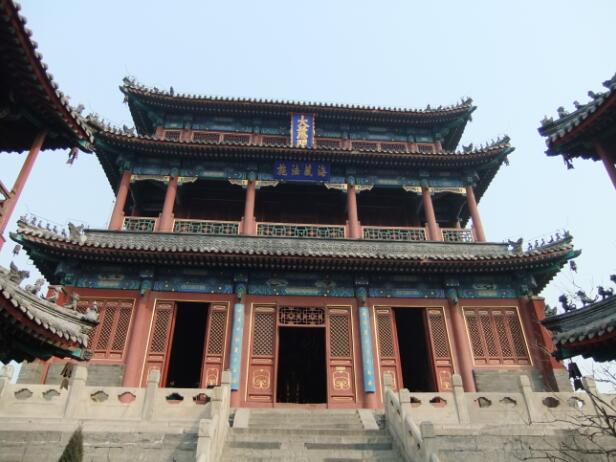
Baoding Geyuan Temple.
Exploring the Temple
Once open, Geyuan Temple offers a unique glimpse into the architectural styles of the Liao Dynasty (907-1125) and earlier periods. Here are some highlights to look out for:
- Wenshu Hall (文殊殿): The main hall dedicated to the bodhisattva Manjushri, showcasing exquisite wooden pillars and intricate carvings. This hall is a prime example of Liao-era architecture and artistry.
- Ancient Relics: The temple grounds house ancient stone pagodas and a historic iron bell, both significant to the temple’s heritage.
- Scenic Surroundings: The temple is surrounded by lush greenery, making it a peaceful spot for reflection and photography.
Duration of Visit
Plan to spend at least 1-2 hours exploring the temple and its surroundings. Given its historical depth, you may find yourself wandering and contemplating the serene beauty of the site.
Tips for Visitors
- Check for Updates: Since the temple is currently closed, it’s essential to check online or contact local tourism offices for the latest information on reopening and any special events.
- Respect the Space: As a historical site, maintain a respectful demeanor. Avoid loud noises and be considerate of other visitors.
- Photography: While taking photos is generally allowed, be mindful of worshippers and the sanctity of the site.
Nearby Attractions
Should you find yourself with extra time, there are several nearby attractions worth visiting:
– Baihua Mountain: A nearby scenic area ideal for hiking and enjoying nature.
– Shijiazhuang: The provincial capital, home to various cultural and historical sites, including temples and museums.
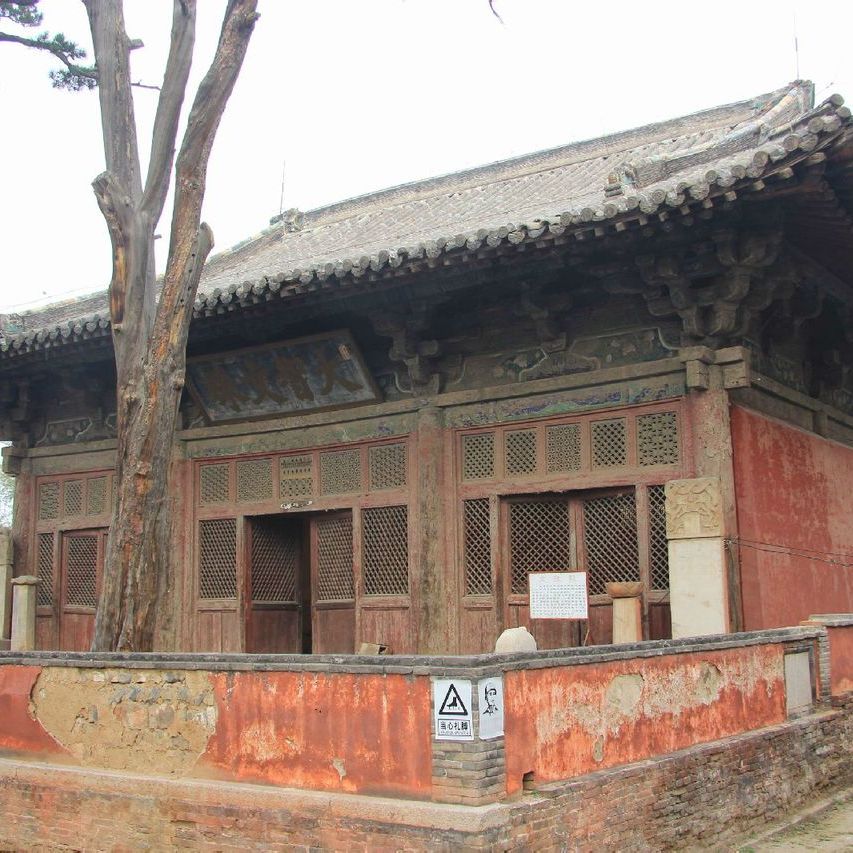
Baoding Geyuan Temple.
Conclusion
Geyuan Temple stands as a testament to China’s rich cultural heritage. Whether you’re a history enthusiast, an architectural lover, or simply seeking a tranquil escape, this temple promises an enriching experience. Always check for the latest visitor information to ensure a smooth journey.
Tickets, Hours, and Booking
Visitors planning to explore the Baoding Geyuan Temple (阁院寺) should take note of the current ticketing details and operational status. As of now, the temple is temporarily closed, with reopening times yet to be confirmed.
When it is operational, entrance fees typically range from ¥30 to ¥50 (approximately $4 to $7 USD) per person, depending on the season and any special events. It is advisable to check for any discounts or group rates that may be available, as these can help reduce costs significantly.
To visit, guests are encouraged to arrive early, as the temple is a popular destination for both history enthusiasts and spiritual seekers alike. The site is well-known for its stunning architecture and serene atmosphere, making it a worthwhile addition to any itinerary in Baoding.
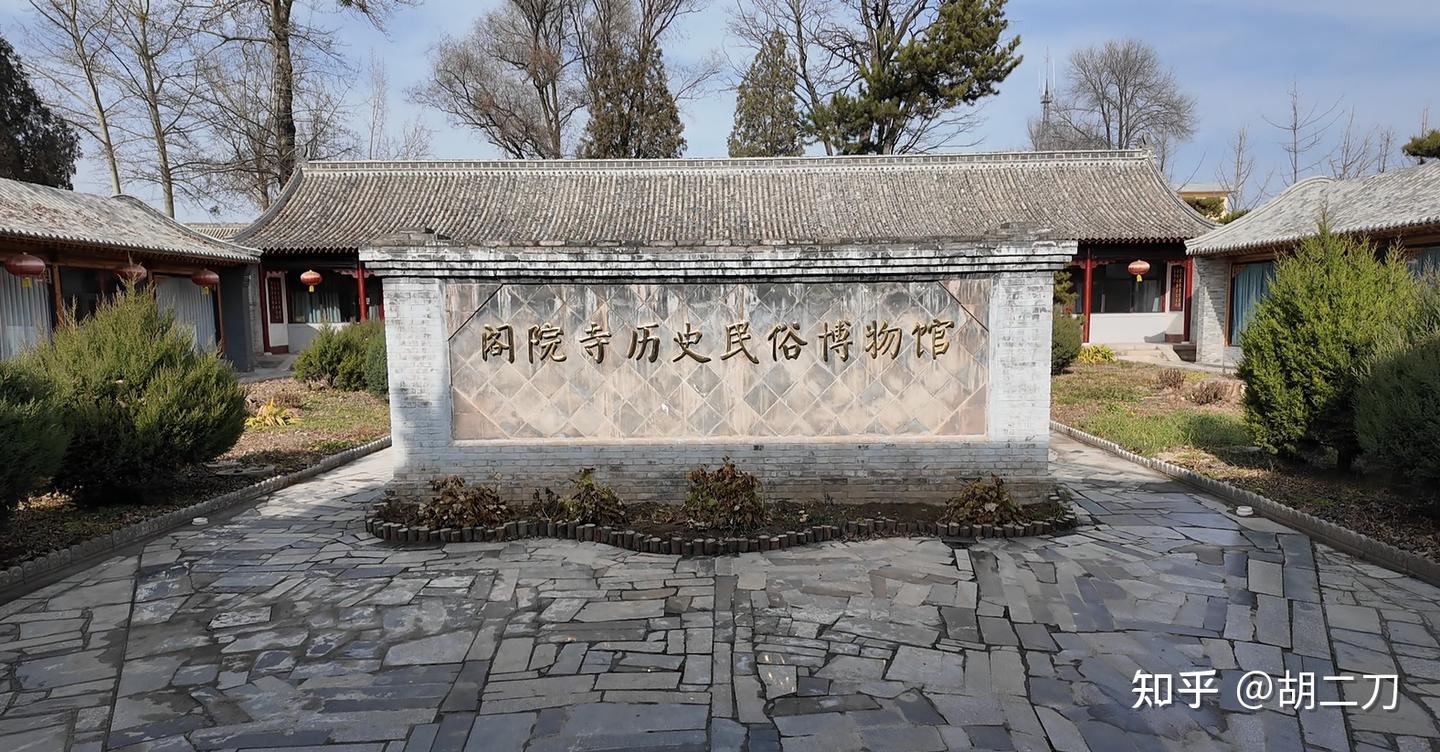
Baoding Geyuan Temple.
For those considering a visit, it’s best to keep an eye on local travel websites or the temple’s official channels for updates on reopening and ticket availability.
How to Get There
Reaching Baoding’s Geyuan Temple (阁院寺) is relatively straightforward, thanks to the well-connected transportation network in Hebei Province. Here’s a detailed guide to help you navigate your way to this historical site.
Getting There
By Train
Baoding is equipped with a central railway station, which offers frequent services from major cities, including Beijing, Tianjin, and Shijiazhuang. Once you arrive at Baoding Railway Station, you can take a local bus or a taxi to reach Geyuan Temple. The temple is approximately 85 kilometers from the station, so plan for a journey of around 1.5 hours.
By Bus
If you prefer traveling by bus, there are several long-distance buses that run from Beijing, Shijiazhuang, and other nearby cities to Laiyuan County, where the temple is located. Buses typically depart from major bus stations in these cities. Upon arriving at Laiyuan Bus Station, you can take a local taxi or a bus to the temple. The ride from the bus station to Geyuan Temple is roughly 15 minutes.
By Car
For those who enjoy driving, renting a car is a great option. From Beijing, you can take the G4 Expressway towards Shijiazhuang and then switch to G107 towards Laiyuan. The journey should take around two hours, depending on traffic. Parking is available near the temple, making it convenient for visitors.
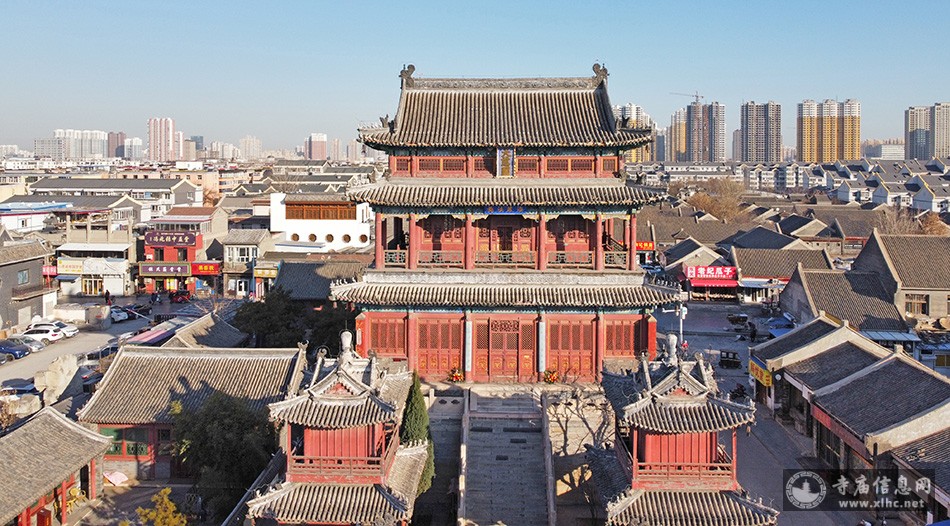
Baoding Geyuan Temple.
Local Transportation
Once in Laiyuan County, local buses are available, but they may not run frequently or cover all tourist spots. For a more comfortable experience, consider hiring a taxi or using a ride-hailing app to get to the temple directly.
Accessibility
It’s important to note that Geyuan Temple’s main structures, including the Wenshu Hall, may have restricted access due to ongoing renovations or maintenance. Always check ahead regarding opening hours and any potential closures. As of the latest updates, it’s advisable to call ahead or check online for the latest visitor information.
Tips for Travelers
- Language: While some signs may be in English, having a translation app can be helpful, especially when communicating with local drivers.
- Timing: Plan your visit during weekdays to avoid large crowds, particularly during local festivals when the temple may be busier than usual.
- Weather Considerations: Check the weather forecast before your trip, as conditions can change rapidly in this region.
By following this transportation guide, your visit to Geyuan Temple can be a smooth and enjoyable experience, allowing you to fully appreciate the beauty and history of this remarkable site.
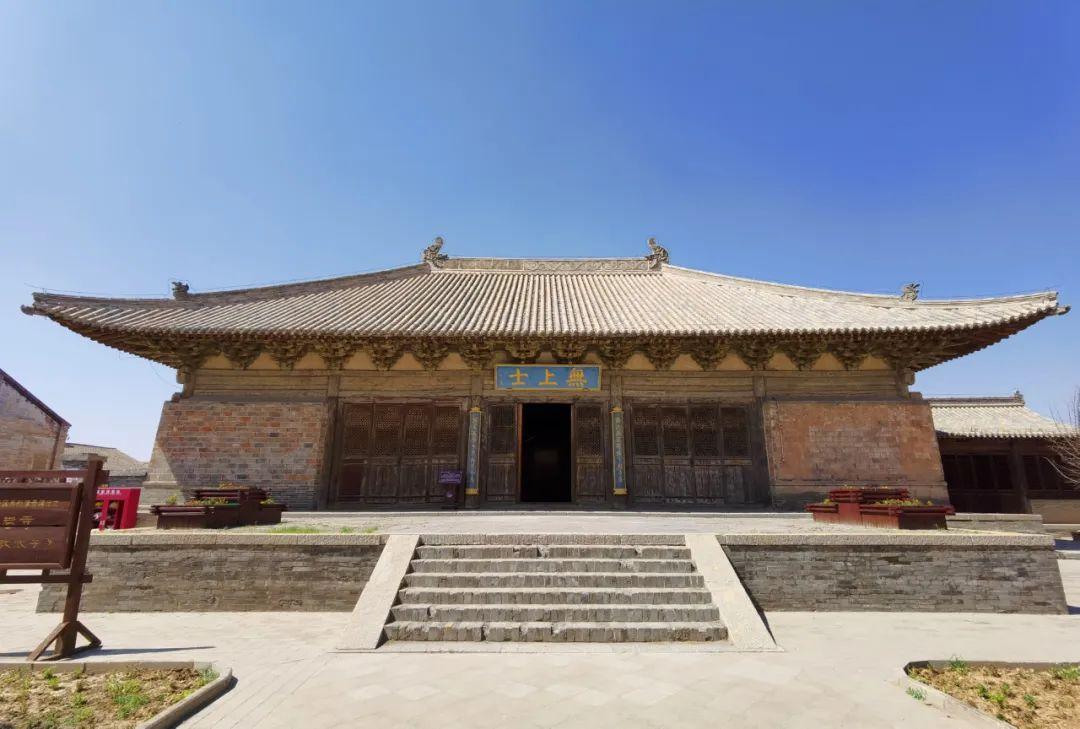
Baoding Geyuan Temple.
Local Cuisine and Accommodation
Visiting Baoding’s Geyuan Temple offers not only a glimpse into the region’s rich history but also a chance to savor local cuisine and find comfortable accommodations nearby. Here’s a curated list of culinary delights and lodging options to enhance your experience.
Culinary Delights
- Laiyuan HuangYuan Restaurant (淶源黄源餐厅)
- Cuisine: Traditional Chinese
- Specialties: Known for its authentic local dishes, this restaurant serves everything from hearty stews to fresh vegetable dishes. The local specialties like “Laiyuan tofu” are a must-try, offering a taste of the region’s agricultural bounty.
-
Location: Approximately 1.5 km from Geyuan Temple.
-
Hejian Donkey Meat Restaurant (河间驴肉火烧)
- Cuisine: North Chinese
- Specialties: Famous for its donkey meat pancakes, this eatery serves delicious and unique snacks that are both filling and flavorful. It’s a great spot to grab a quick bite after your temple visit.
-
Location: About 875 meters from the temple.
-
Natural Delights Food Garden (天然居美食苑)
- Cuisine: Farm-to-table
- Specialties: This restaurant emphasizes fresh, organic ingredients sourced from local farms. Their seasonal dishes change frequently, making it a delightful choice for those wanting a taste of the freshest produce.
-
Location: Roughly 655 meters away.
-
Laiyuan Yummy Hotpot (淶源火锅)
- Cuisine: Hotpot
- Specialties: A popular dining choice for families, offering a variety of meats, vegetables, and dipping sauces for a customizable hotpot experience. Ideal for sharing and enjoying a hearty meal.
- Location: Within 2 km of the temple.
Accommodation Options
- Baihua Forest Hot Spring Valley Hotel (白桦林温泉谷酒店)
- Rating: 4.7/5
- Description: A luxurious retreat featuring hot springs and scenic views of the surrounding mountains. This hotel is perfect for travelers looking to relax after a day of exploration. The on-site spa offers various treatments, making it an ideal choice for rejuvenation.
-
Price Range: Starts at approximately 789 CNY per night.
-
Vienna International Hotel (维也纳国际酒店)
- Rating: 4.8/5
- Description: Located centrally, this hotel combines comfort and convenience, providing well-furnished rooms equipped with modern amenities. The friendly staff offers great service, making your stay pleasant and hassle-free.
-
Price Range: About 294 CNY per night.
-
Laiyuan Yiqu City Experience Hotel (淶源逸趣城体验酒店)
- Rating: 4.5/5
- Description: This boutique hotel offers a cozy atmosphere with stylish decor and personalized service. It’s perfect for travelers looking for a unique stay that reflects local culture.
-
Price Range: Approximately 198 CNY per night.
-
Shu Man Hotel (舒漫酒店)
- Rating: 4.4/5
- Description: A budget-friendly option that doesn’t compromise on comfort or cleanliness. With convenient access to local attractions, it’s a great choice for travelers on a tight budget.
- Price Range: Starting at 180 CNY per night.
These dining and accommodation options will surely enhance your visit to Geyuan Temple, allowing you to immerse yourself in the local culture while enjoying the region’s historical and culinary offerings.
Frequently Asked Questions
Frequently Asked Questions about Baoding Geyuan Temple (阁院寺)
-
What is the history of Geyuan Temple?
Geyuan Temple, also known as the “Geyuan Monastery,” was established during the Eastern Han dynasty. The most notable structure within the temple, the Wenshu Hall, was built in 966 AD during the Liao dynasty. This temple is recognized for its historical, scientific, and artistic significance, making it one of the few surviving timber structures in China that are over a thousand years old. -
Where is Geyuan Temple located?
Geyuan Temple is situated at No. 1 Geyuan Road, Laiyuan County, Baoding City, Hebei Province, China. It is easily accessible as it is located about 150 meters west of the intersection of Guangchang Avenue and Geyuan Road. -
What are the visiting hours for Geyuan Temple?
The temple is currently closed for renovations and its reopening date has not been announced yet. Once open, the typical visiting hours are expected to be from 8:00 AM to 6:00 PM. -
Is there an entrance fee to visit the temple?
As of now, the entrance fees have not been specified due to the temple’s temporary closure. Generally, entrance fees may apply when the temple reopens. -
What can I see inside Geyuan Temple?
Visitors to Geyuan Temple can admire several ancient structures, including the Wenshu Hall, which features impressive wooden beams and intricate carvings. The temple grounds also contain historical relics such as a stone stupa and an iron bell from the Liao dynasty. -
What should I know before visiting Geyuan Temple?
Since the temple is currently not open to the public, it’s advisable to check for updates regarding its reopening. When it reopens, visitors should be respectful of the sacred space and dress modestly. Additionally, it’s a good idea to maintain a quiet atmosphere to enhance the spiritual experience. -
How do I get to Geyuan Temple?
Geyuan Temple can be reached by public transport or taxi from nearby train or bus stations in Laiyuan County. If you are driving, you can follow local road signs or use a navigation app to guide you to the temple’s address. -
Are there any other attractions near Geyuan Temple?
Yes, there are several attractions in the vicinity of Geyuan Temple, including the scenic Baishi Mountain and various local parks. Additionally, you can explore local dining options that offer traditional Chinese cuisine, enhancing your cultural experience.
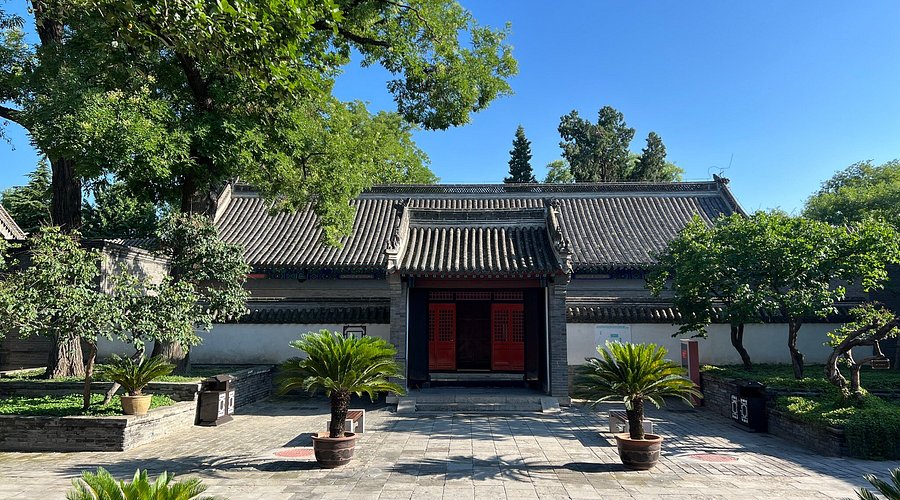
Baoding Geyuan Temple.
Final Thoughts on Your Trip
Visiting Baoding’s Geyuan Temple is more than just a trip to an ancient site; it is a journey through time that reveals the rich tapestry of Chinese history and architecture. As you wander through the serene grounds, you are enveloped by the whispers of the past, where each structure tells a story of devotion and artistry. The temple, with its impressive Monju Hall and other historical buildings, stands as a testament to the ingenuity of the Liao Dynasty, showcasing architectural brilliance that has withstood the test of time.
While the temple is currently undergoing renovations, this pause in its usual bustle offers a unique opportunity for reflection and appreciation of its historical significance. Imagine the vibrant rituals that once filled these halls and the monks who dedicated their lives to spiritual pursuits.
As you explore the surrounding areas, you’ll find yourself immersed in local culture, with charming parks and delightful eateries nearby, allowing for a well-rounded experience. Geyuan Temple is not just a destination; it is a peaceful retreat where one can connect with history, nature, and the essence of Chinese spirituality.
When the doors of Geyuan Temple fully reopen, it promises to welcome visitors with renewed beauty and a deeper understanding of its storied past. Whether you are a history enthusiast, a spiritual seeker, or simply a traveler in search of tranquility, Geyuan Temple offers a captivating experience that lingers in the heart long after you leave. So, take the time to visit, reflect, and appreciate the profound beauty found within these ancient walls.
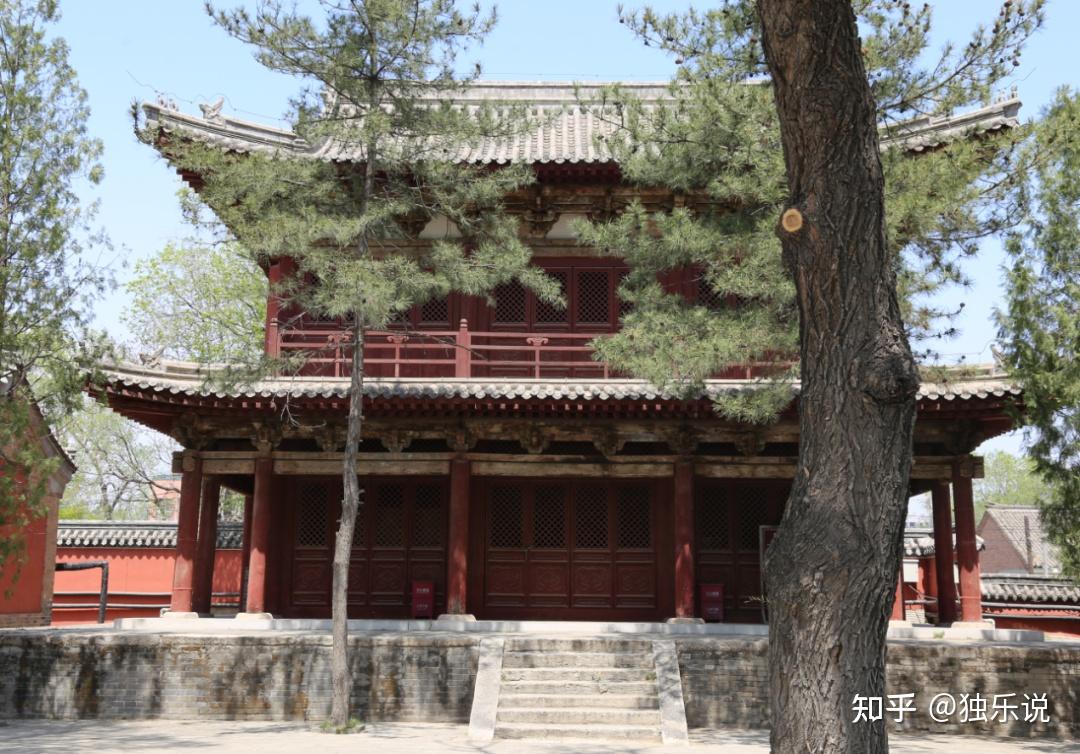
Baoding Geyuan Temple.
